Life
Sign up for our newsletter
We summarize the week's scientific breakthroughs every Thursday.
-
 Animals
AnimalsA brief history of animal death in space
The Russian “sexy space geckos” join a long list of creatures that have died after humans sent them into space.
-
 Health & Medicine
Health & MedicineTwo-part vaccine protects monkeys from Ebola
An experimental vaccine protected macaques from infection with the Ebola virus up to 10 months after receiving the two-shot regimen.
By Nathan Seppa -
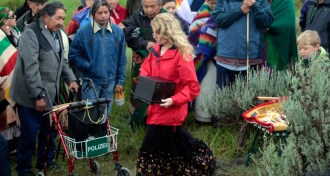 Genetics
GeneticsMolecular biologist honors ancient bones
After deciphering an ancient skeleton’s genetic secrets, molecular biologist Sarah Anzick helped reinter the remains.
-
 Paleontology
Paleontology‘Dinosaur 13’ details custody battle for largest T. rex
Documentary details nasty custody battle over the dinosaur nicknamed Sue, the largest T. rex skeleton ever found.
By Meghan Rosen -

-
 Genetics
GeneticsA story about why people get fat may be just that
In this issue, reporters look at efforts to find the genes that could be responsible for the obesity crisis and how evolution acts on diseases such as Ebola and tuberculosis.
By Eva Emerson -
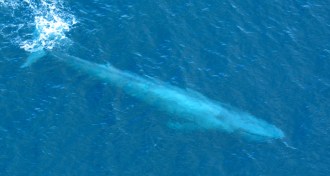 Animals
AnimalsNumbers of California blue whales rebound
Blue whales, the largest animals on Earth, were hunted nearly to extinction. Now the population that feeds off the coast of California appears to have rebounded to close to prewhaling numbers.
-
 Genetics
GeneticsAncient famine-fighting genes can’t explain obesity
Scientists question the long-standing notion that adaptation — specifically the evolution of genes that encourage humans to hold on to fat so they can survive times of famine — has driven the obesity crisis.
By Laura Beil -
 Microbes
MicrobesMagnets diagnose malaria in minutes
A small magnet-based device provides faster, more-sensitive malaria diagnosis in mice.
By Nsikan Akpan -
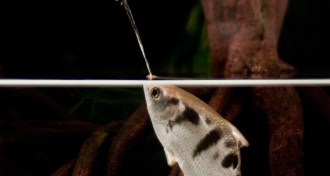 Animals
AnimalsArcherfish mouth is the secret of precision spit
Trained fish shoot down two hypotheses for their fine spit control but reveal fancy mouth work.
By Susan Milius -
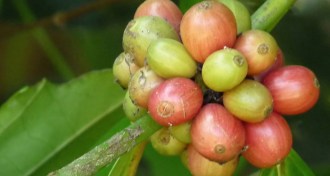 Genetics
GeneticsSource of coffee’s kick found in its genetic code
Coffee doubled up on caffeine-making genes. Those genes evolved independently from similar ones found in tea and chocolate plants.
-
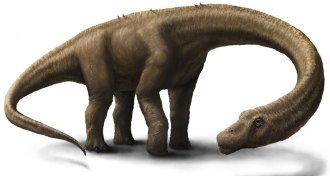 Paleontology
PaleontologyWorld’s largest dinosaur discovered
A plant-eating dinosaur named Dreadnoughtus schrani has claimed the record for most massive land animal discovered to date.
By Meghan Rosen